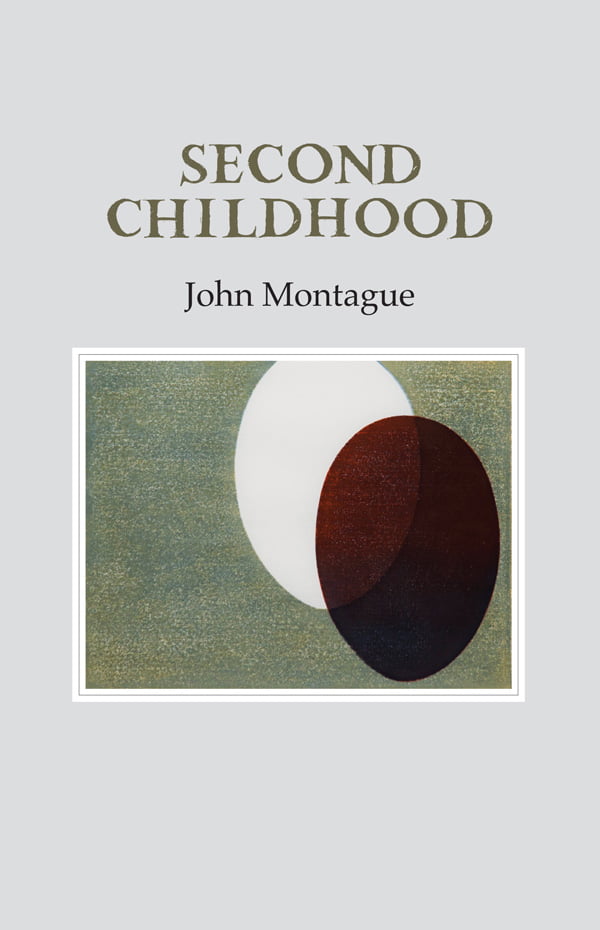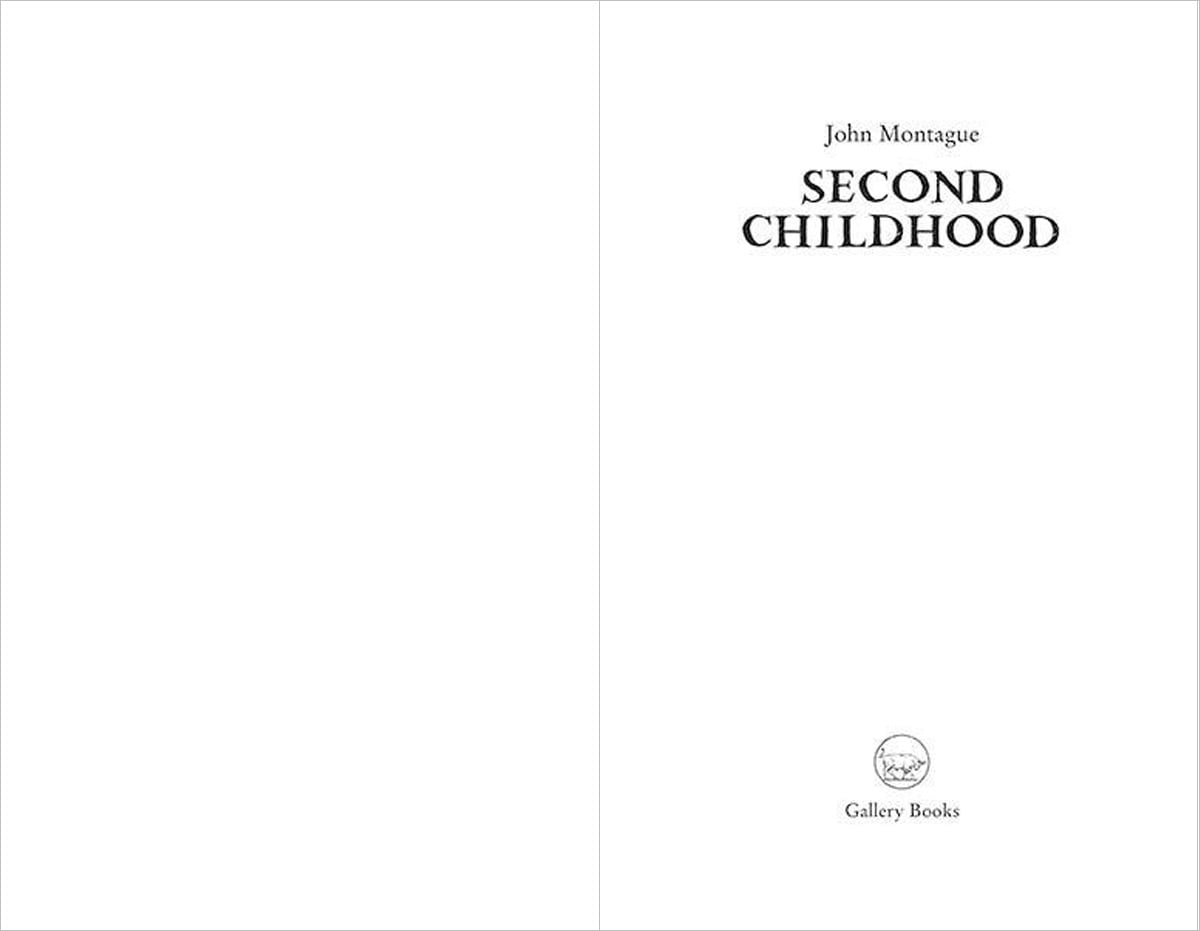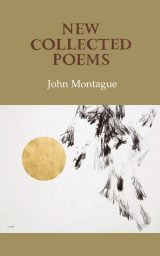John Montague’s collection, Second Childhood, circles back to familiar subjects, his childhood in Ulster and his recognition that a family fracture was reflected in divisions within his surrounding society. It includes explorations of childhood and adolescence with its awakening sexuality. Other poems contemplate Gerard Manley Hopkins in Dublin and remember John Berryman in Dublin and Paris and, in the more substantial ‘Scotia’, another old friend, Hugh McDiarmid.
I am a small boy
standing in a field.
Where is my mother?
Where is my father?
The book’s second section continues John Montague’s recollections by reconstructing pilgrimages to and conversations with the poet and artist David Jones (1895-1974).
Second Childhood was published on what would have been his 88th birthday, a windfall from one of Ireland’s revered and best loved poets.
‘Gallery Press published what has turned out to be John Montague’s last book, Second Childhood on what would have been his 88th birthday. So both its subject and its title have a fitting elegiac quality to them as he circles back to his childhood in Co Tyrone with the fissures in society and family there, and the excitement of incipient sexuality in his schooldays . . . This structuring of Montague’s work across his whole career is remarkably echoed in the briefer compass of Second Childhood . . . As so often with Montague’s work, we are left marvelling at his extraordinary gift for the spare, exact word (like “vault” here), now admiring it anew for the last time. His lucid lyricism and good humour, free of any trace of pomposity, will be sadly missed. — Bernard O’Donoghue, The Irish Times
Second Childhood review: Looking back on a ‘landscape with figures’
Gallery Press published what has turned out to be John Montague’s last book, Second Childhood on what would have been his 88th birthday. So both its subject and its title have a fitting elegiac quality to them as he circles back to his childhood in Co Tyrone with the fissures in society and family there, and the excitement of incipient sexuality in his schooldays.
. . . the volume is organised very consciously, first into two major “Parts” (reminding us that he said a long time ago that the writer of short lyrics always has a wish to write more extended sequences, like the “orchestrations” the editors mentioned): Part One is the lyrics of Second Childhood itself , further divided into three groups of poems dealing first with family and locality, then schooldays, and finally a series of elegiac poems mostly concerned with poetic encounters, including acquaintances like Hugh MacDiarmid and John Berryman but also dwelling with humanising lightness on the anxiety of Hopkins in Dublin.
. . . As so often with Montague’s work, we are left marvelling at his extraordinary gift for the spare, exact word (like “vault” here), now admiring it anew for the last time. His lucid lyricism and good humour, free of any trace of pomposity, will be sadly missed.
— Bernard O’Donoghue, The Irish Times
Writing about pets can be a challenge, and in the wrong hands can be a bore for the reader. Not so with John Montague, whose posthumously published 73-page collection opens with a gently wistful poem called The Afterlife of Dogs. This simple but subtly restrained elegy does a final reckoning in the last two lines, recalling seven dogs buried beneath the rhubarb/beside our lorry-laden road.
I did not know/ then that dying is an art/ which dogs have mastered: their frail show of love/a final dignity.
The poet returns to the same rood of well-trodden ground occupied by many of his previous poems. Many of the poems in this new collection evoke his sense of wonder in the presence of the animal kingdom, as in a long poem such as Lord of the Animals. There are indelible sights, such as that timid deer peering/from the hazel forest/of our holy mountain… in the poem Return.
We meet again the dolmen relations around his childhood in Tyrone, the unnamed aunt feeding the turkeys, or Aunt Brigid and Aunt Frida who feature in War Office, a bright little poem about a dark subject, anti-Semitism.
Austin Lynch, a dear pal (and fellow altar-server) is prominent in dispatches from Montague’s acre of boyhood lore. The poet boxes with Austin `who was famous for his haymaker’ and while he comes out the worst in the end, he gets a pair of numinous lines to conclude his poem, simply-entitled KO. When I dropped I didn’t know/ if it was the wind he had churned/that felled me, or a direct hit.
There is something elemental, even Symbolist, about the poem The Cry in which the poet hears a primeval cry in the sound that a tree makes as it is being felled.
No reader can fail to warm to the tenderness of New Milk, which details the brazen attempt at seduction of one Sara Anne who came to fetch the milk/ down by the Waterside every evening. It is without doubt one of John Montague’s very best poems, short and nimble, an upset pail of milk the paradigm for young love’s chancy tendency to upset.
All of summer/seemed to gather towards that hour/where we lay so close together.
— Paddy Kehoe, RTE Culture





